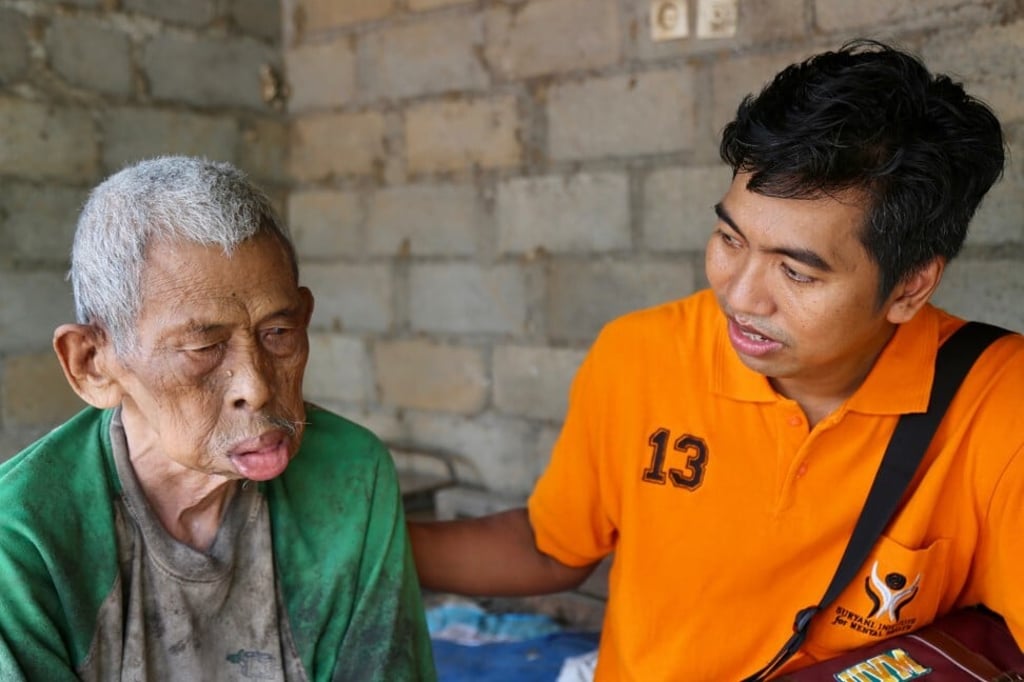On the Indonesian island of Bali, the barbaric practice of pasung keeps mentally ill shackled and shamed
Despite being outlawed since 1977, the tradition of physically restraining schizophrenics continues on the Indonesian island, where poverty and the stigmatisation of mental-health leaves family members with few options

The scene is straight out of a Dutch oil painting from Bali’s colonial era. Children splash in a clear stream that meanders through a verdant jungle, the cone of a distant volcano visible through gaps in the palm trees, coconuts dangling in a light breeze.
In the century that has passed, this once-remote tropical island has metamorphosed into one of the top travel destinations on Earth. In 2019, 16 million people chose to holiday in Bali. They came for the sand and the surf, the Hindu customs and culture, and the ostentatious resorts, where holistic yoga retreats are as big a draw as the thumping nightlife.
“People consider Bali a paradise,” says Dr Cokorda Bagus Jaya Lesmana, as he leads a small group of volunteers along the riverbank in this remote eastern corner of the island. “But for evil people, it’s paradise, too … a paradise to practise evil things.”
Cokorda is not talking about the usual Southeast Asian problems of prostitution and paedophile rings, and few tourists would ever see the depravity of which he speaks.

On weekdays, Cokorda, a psychiatrist whose boyish face belies his 44 years, treats patients in the island’s capital, Denpasar. But on weekends he works pro bono with the Suryani Institute for Mental Health, a charity founded by his mother that offers meditation classes, elderly support, child protection and crisis relief for Bali’s poor.
It is best known, however, for rescuing victims of pasung – the Indonesian word for stocks – an ancient and barbaric way of preventing people with severe mental illness from harming either themselves or others.